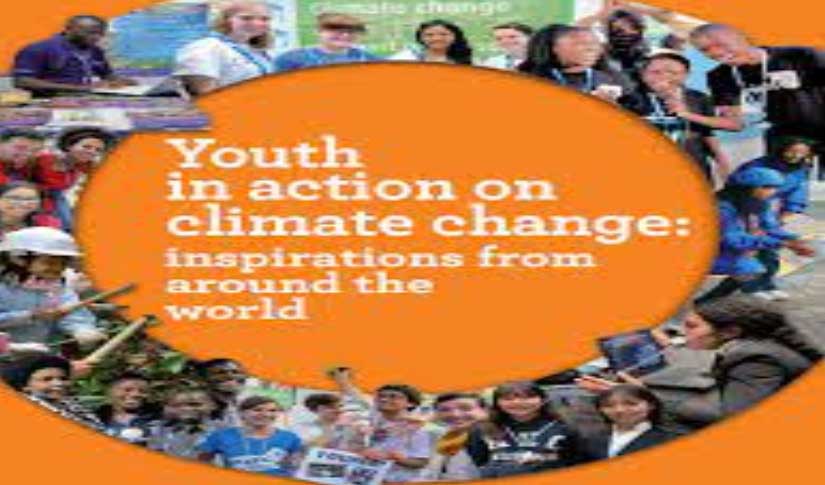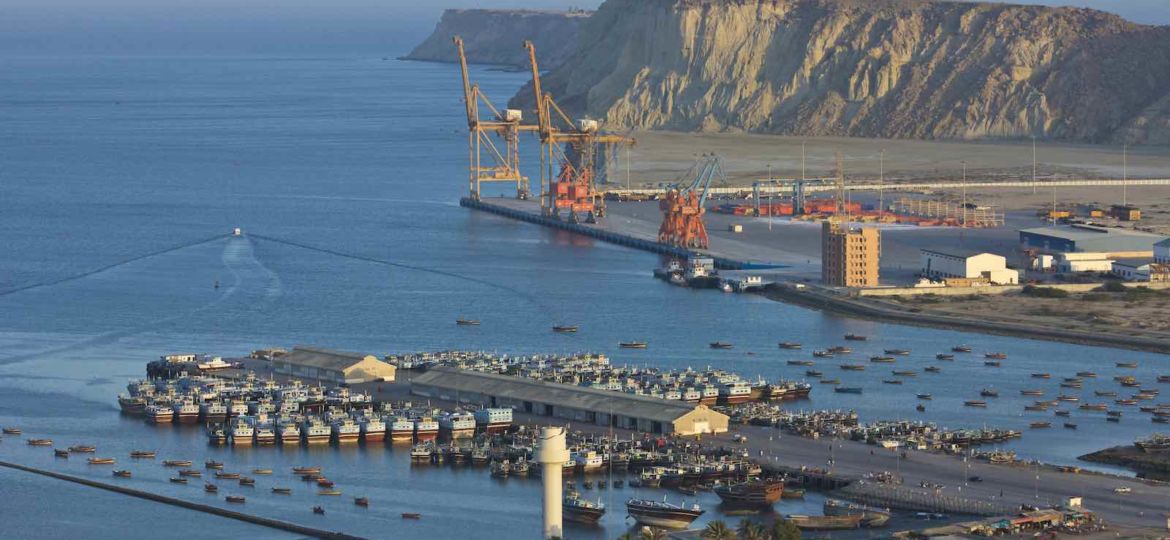By: Emaan Fatima and Aqsa Aslam
Climate Changes is getting worse each year and is one of the most critical global challenges of our times. Recent events have shown our increasing susceptibility, particularly with regard to climate change. The consultations and the U-Report funding clearly indicate that there is an urgent need to engage, sensitize and build strong cases for youth participation in decision-making processes at local and national levels.
What do you know about Climate Change?
Generally climate change refers to the disturbances or long-term changes in temperature and weather patterns. These changes can be caused through natural activities such as solar cycle or anthropogenic activities, primarily due to deforestation and burning of fossil fuels like coal, oil and gas.
Burning of fossil fuels releases greenhouse gases that traps the Sun’s heat and raises temperatures which increases the global warming and hence the major cause of Climate Changes whereas deforestation is the second leading cause of global warming and produces about 24 percent of global greenhouse gas emissions.
The Framework Convention on Climate Change (UNFCCC), in its Article 1, defines climate change as: “A change of climate which is attributed directly or indirectly to human activity that alters the composition of the global atmosphere and which is in addition to natural climate variability observed over comparable time periods.”
Climate change has caused severe effects on the global climate, such as increase in carbon dioxide level, global warming, melting of glaciers, floods, rise of sea levels, and ocean acidification.
Climate Change Reports:-
In its Fifth Assessment Report, the Intergovernmental Panel on Climate Change (IPCC) concluded that in the past 50 years, 95 percent of planet Earth is heated up due to human activities including that the level of atmospheric Carbon dioxide which is raised from 280 parts per million to 400 parts per million in the last 150 years mainly through industrial activities on which our modern civilization is based.
Secondly, as per NASA’s evidence, since the 19th century, the average surface temperature of planet Earth has risen about 1.62 degrees Fahrenheit (0.9 degrees Celsius). Thirdly, the ice sheets are shrinking whereas oceans are getting warmer. As per NASA, since 1969, the oceans have absorbed much of this increased heat, with the top 700 meters of ocean showing warming of more than 0.4 degrees Fahrenheit. From between 1993 to 2016, the Greenland and Antarctic ice sheets have decreased an average of 286 billion tons of ice per year.
Fourthly, the glaciers are melting which is rapidly increasing the sea level. Globally, the glaciers are declining including in the Alps, Himalayas, Andes, Rockies, Alaska and Africa. The global sea level rose about eight inches in the last century. Since the Industrial Revolution, the ocean acidification, which has increased by about 30 percent which is another evidence of climate change which has a negative impact on crop yield productions and has direct impact on the lives of humans.
Impacts of Climate Change in Pakistan:-
Although Pakistan is not much contributing in global warming and climate change, yet it is the seventh most affected country. During the last century the average temperature over Pakistan has increased by 0.6° C, which is in accordance with the increase of global temperature. According to the experts, in the past 20 years, Pakistan has faced 150 freak weather incidents due to climate change i.e. flash floods, smog in winter, heat waves, forest fires in summer, melting of glaciers, landslides. In 2022, due to climate changes, Pakistan faced catastrophic floods mainly due to glacier melting and increased precipitation which caused huge distortions including displaced population, increase in pollution, reduced access to food, affected food quality, changes in precipitation patterns, changes in extreme weather events, reductions in clean water availability, distortion of crops, and increase in various fatal diseases. As Pakistan is an agricultural country so it has suffered economically due to climate change.
Role of Youth in Climate Change:
Youth plays a crucial role in combating climate change and deserves to be at the forefront of all planned policies and action. Youth can help in stop climate change in their own simple yet purposeful ways through spreading awareness such as joining environmental organizations, participating in various government and private programs and projects against climate change, joining cleanup drives, participating in planting and go-green activities, recycling initiatives, getting involved in environmental protests and campaigns, using social media for promoting awareness about climate change, limiting the use of plastics, report illegal activities to authorities, walking in short distances rather than riding fueled vehicles, segregating garbage and by encouraging others.
According to the data from United nations, nearly half a million youth around the world have taken action on climate change through small grants programs projects in their educational institutions and communities (UNDP, 2015). 84% of the surveyed young people agreed that they need more information to prevent climate change (UNEP, 2011) whereas 73% of surveyed youth say they currently feel the effects climate change (UNEP, Globe Scan Survey, 2008). 89% of youth respondents say young people can make a difference on climate change (UNEP, 2008). But only 9% of youth are very confident the world will act quickly enough to address climate change (UNEP, 2008) which shows the interest of youth on climate change which also increased rapidly by the passage of time.
Young people are key actors in raising awareness, running educational programs, promoting sustainable lifestyles, conserving nature, supporting renewable energy, adopting environment-friendly practices and implementing adaptation and mitigation projects (UNFCCC). Climate change is not easy to stop but these steps can help to mitigate climate change. Already different international organizations are taking various steps against climate change through various projects and by implementing laws. Government should also need to come up with different other strategies and policies with the help of youth to control the current and major issue of climate change, as climate change is a global health and socio-economic emergency otherwise it might threaten the lives of future generations.
Aqsa Aslam and Emaan Fatima are environmental activists; currently pursuing their bachelor’s in international Islamic University, Islamabad and can be reached at emaan.bses1776@iiu.edu.pk.










